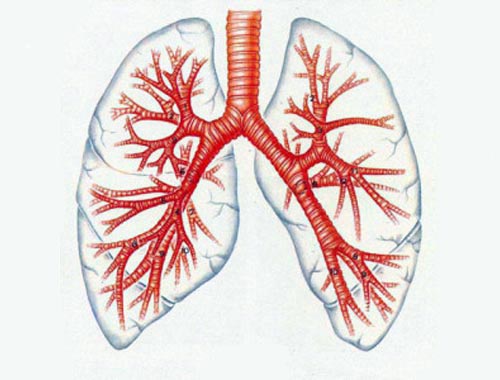Acute Bronchitis
Acute bronchitis is an inflammation of the large bronchi (medium-size airways) in the lungs that is usually caused by viruses or bacteria and may last several days or weeks. Characteristic symptoms include cough, sputum production, and shortness of breath and wheezing related to the obstruction of the inflamed airways. Diagnosis is by clinical examination and sometimes microbiological examination of the phlegm. Treatment for acute bronchitis is typically symptomatic. As viruses cause most cases of acute bronchitis, antibiotics should not be used unless microscopic examination of gram-stained sputum reveals large numbers of bacteria. Acute illness with cough in a patient without underlying respiratory problems; usually caused by a viral infection. Cough is typically worse at night or with exercise; lasts >2 weeks in 50% and 4 weeks in 25% of patients; may be associated with bronchospasm and-or excessive mucus production. Diagnosis is primarily clinical. Other causes for acute cough such as pneumonia, asthma, or postnasal drip should be ruled out if suspected. Treatment is aimed at symptom reduction until infection is resolved and bronchial damage repaired. Antibiotics have minimal benefit, while cough suppressants or bronchodilators may reduce symptoms in some patients. Complications are rare; the primary complication is a postbronchitis syndrome, which can produce a cough lasting several months.
